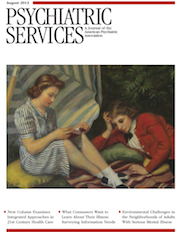Mental Health Clinicians’ Motivation to Invest in Training: Results From a Practice-Based Research Network Survey
Abstract
Objectives
Little is known about why clinicians seek training or about their willingness to invest in it.
Methods
Results from a Web-based survey of 318 clinicians in a practice-based research network were used to examine factors that motivate clinicians to seek training or forgo training (“deal breakers”) and their willingness to invest time and money in training.
Results
Clinicians desired training that teaches advanced versus basic clinical skills, that covers an area they see as central to the needs of their clients, and that provides continuing education credit. Training that requires clinical supervision or the use of a manualized intervention was not a deal breaker for most clinicians. However, the amount of time and money most clinicians reported being willing to invest in training fell far short of the requirements for learning most evidence-based treatments.
Conclusions
Training strategies that combine high intensity with lower cost may be needed.



